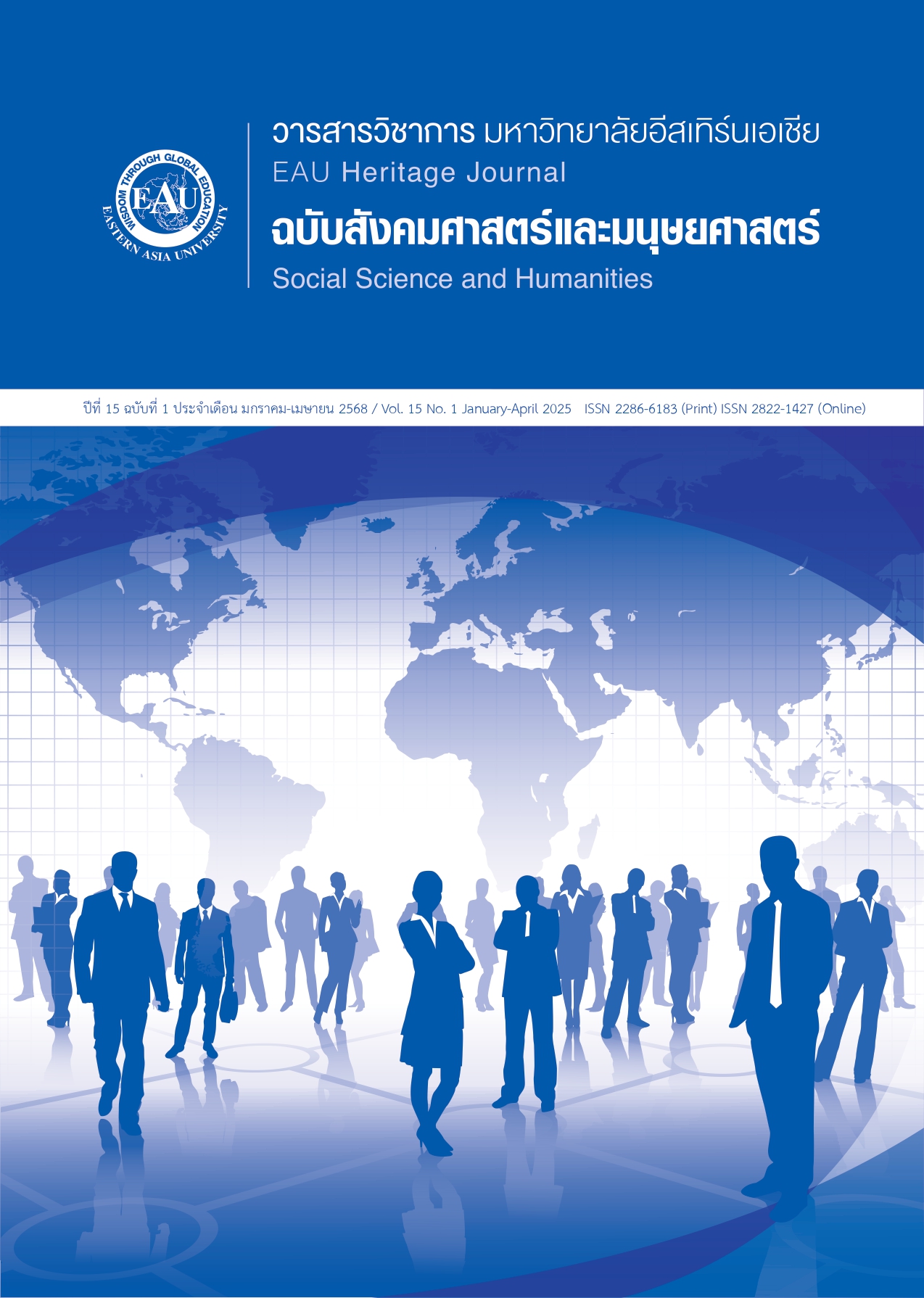Factors Influencing Adverse Symptoms During In-flight Training of Student Pilots in Thailand
Keywords:
Thai Student Pilots, In-Flight Training, Undesirable SymptomsAbstract
The objectives of this research were (1) to examine the four factors influencing undesirable symptoms in Thai student pilots during flight training: physical health, mental health, instructor motivation, and adaptive behavior; and (2) to analyze the relationship between these four factors and the occurrence of undesirable symptoms. This research employed a mixed-method approach, using questionnaires for quantitative data and interviews for qualitative data. The population consisted of 489 student pilots enrolled in commercial pilot and the Royal Thai Air Force pilot training programs at flight schools in Thailand during the 2021 academic year. The results indicated that physical health, mental health, instructor motivation, and self-adaptive behavior among student pilots in Thailand significantly and differently affect adverse symptoms during flight, with statistical significance at the 0.01 level. Correlation analysis indicated that air pressure impacts the occurrence of adverse symptoms. It is recommended that physical preparation before each flight, such as engaging in activities that promote body relaxation, help mitigate these symptoms. Furthermore, the motivation provided by flight instructors assists student pilots in adapting to potential adverse reactions.
References
Bunwongwan, V. (2018). Obstacles affecting undergraduate students' decision to enter the
commercial pilot career in Thailand. Bangkok: Thammasat University. (in Thai)
Civil Aviation Institute of Thailand. (n.d.). Medical class 1 and 2 examination. Retrieved from
https://www.caat.or.th/th. (in Thai)
Institute of Aviation Medicine. (n.d.). Good flying skills. Bangkok: Institute of Aviation Medicine,
Royal Thai Air Force. (in Thai)
Kanchanakit, S., & Chantruthai, S. (1999). Sports psychology, concepts, theory into
practice. Bangkok: Chulalongkorn University Press. (in Thai)
Kaewkangwan, S. (2001). Personality psychology theory: Knowing us, knowing them.
(9th ed.). Bangkok: Doctor Ban. (in Thai)
Lee, I. M., Shiroma, E. J., Lobelo, F., Puska, P., Blair, S. N., Katzmarzyk, P. T., & Wells, J. C. (2012).
Effect of physical inactivity on major non-communicable diseases worldwide: An
analysis of burden of disease and life expectancy. The lancet, 380(9838), 219–229.
McCrae, R. R., & Costa Jr, P. T. (1989). More reasons to adopt the five-factor model. American
psychologist, 44(2), 451-452.
Nakabut, N., & Sonsuphap, R. (2017). Working health of flight attendants. case
study of low-cost airlines in Thailand. Rangsit journal of graduate studies in business
and social sciences, 2(2), 152-166. (in Thai)
Panpreecha, C. (2008). General psychology unit 9. (21st ed.). Bangkok: Sukhothai
Thammathirat Open University Press. (in Thai)
Post Today. (2015). Above (air) must be safe.
Promjui, S. (1983). The relationship between the components of personality in terms of
being sensitive to emotions. with official achievement study mathematics English and
Thai science of Mathayom 3 students in Suphanburi province. Bangkok:
Srinakharinwirot Prasarnmit University (in Thai)
Post Today. (2015). The above (air) must be safe. Retrieved from
https://www.posttoday.com/life/healthy/375621. (in Thai)
PPTV Online. (2024). Retrieved from https://www.pptvhd36.com/news/ต่างประเทศ/224779
Sigmund Freud. (2017). Three essays on the theory of sexuality: The 1905 edition. Verso Books.
Supiriyanan, K., & Sonsuphap, R. (2014). Creating professional pilots in Thailand.
Journal of finance, investment, marketing and business services, 4(1), 259-272. (in Thai)
Supiriyanan, K., & Sonsuphap, R. (2014). Creating professional pilots in Thailand.
Journal of finance, investment, marketing and business services, 4(1), 259-272.
(in Thai)
Trakulsarit, W. (2002). Psychology of adaptation. Bangkok: Academic Promotion Center.
(in Thai)
Taro Yamane. (1973). Elementary sampling theory, taro yamane. Englewood Cliffs, New
Jersey: Prentice-Hall.
Yngve, M., Munkholm, M., Lidström, H., Hemmingsson, H., & Ekbladh, E. (2018). Validity of the
school setting interview for students with special educational needs in regular high
school-a Rasch analysis. Health and quality of life outcomes, 16(12), 1–12.





